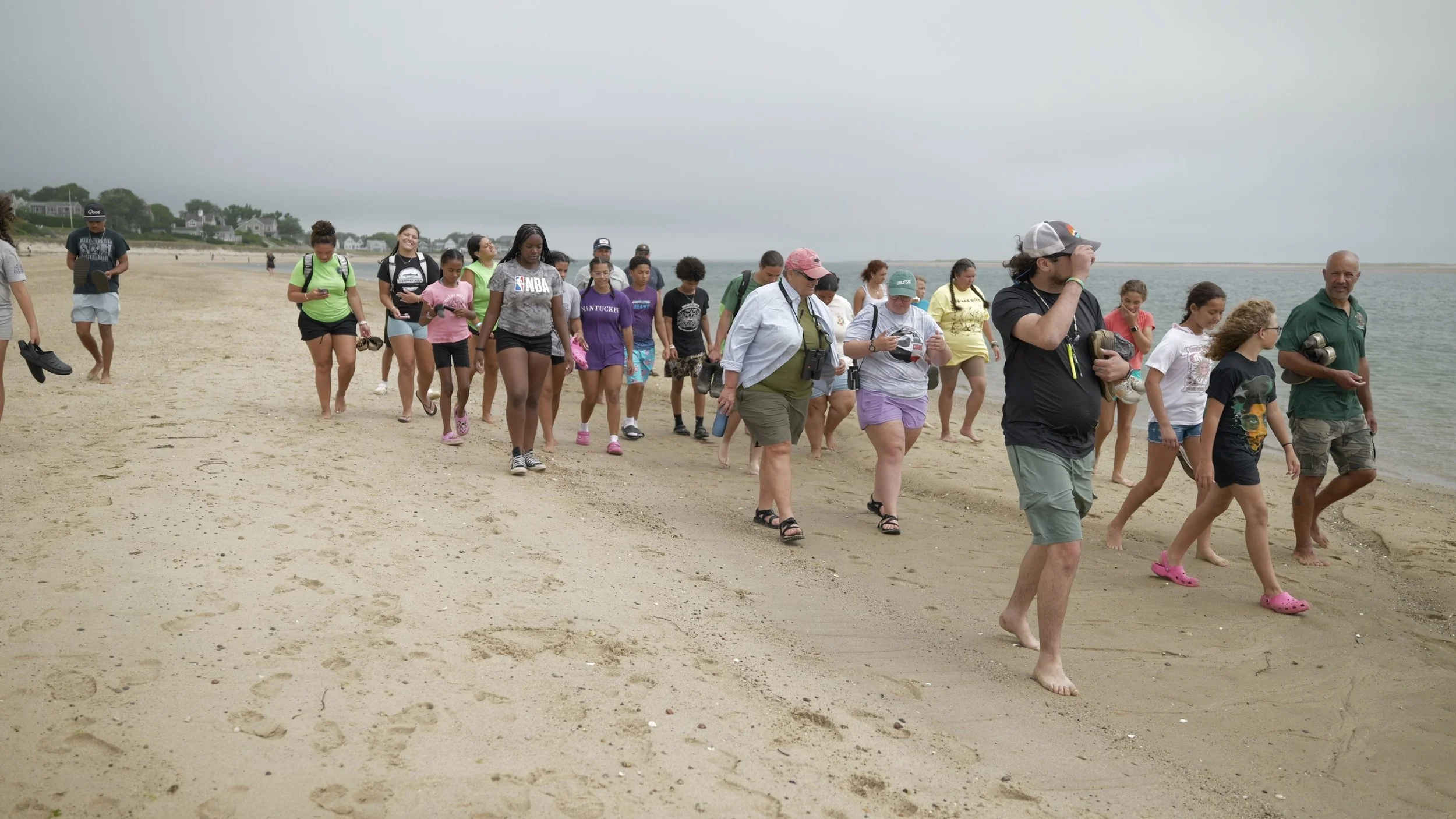POH Camp Connects Tribal Youth with Environment and Culture
Tribal youth participating in the Preserving our Homelands camp spent two days last month in Harwich and Chatham with partners of the tribe learning about the environment, cultural practices, and Wampanoag history.
On day one, youth spent a day on the water at the Pleasant Bay Community Boating Center. There, they observed eelgrass meadows by boat, identified shellfish during an intertidal walk, and learned how these habitats anchor both ecosystems and Wampanoag lifeways. A visit to a shell midden connected students to ancestral practices and the importance of stewardship.
On day two, the camp traveled to Lighthouse Beach in Chatham, MA. Here, students learned about the ecological significance of the shifting sands, tidal currents, and shellfish habitats, while also hearing about the deep cultural history of this place for the Wampanoag people. Guided by Culture Keeper Brad Lopes, youth reflected on responsible harvesting, Aboriginal rights, and how listening to the land and water teaches us how to care for them.
We want to give a special thanks to friends from the Pleasant Bay Community Boating, The Center for Coastal Studies, UNH, Cape Cod National Seashore, and Brad Lopes for serving as a culture keeper during the programming.
These two days highlighted POH’s mission: where modern science and Traditional Ecological Knowledge come together*—and inspired the next generation of Tribal leaders to carry forward their responsibility to land and sea.



